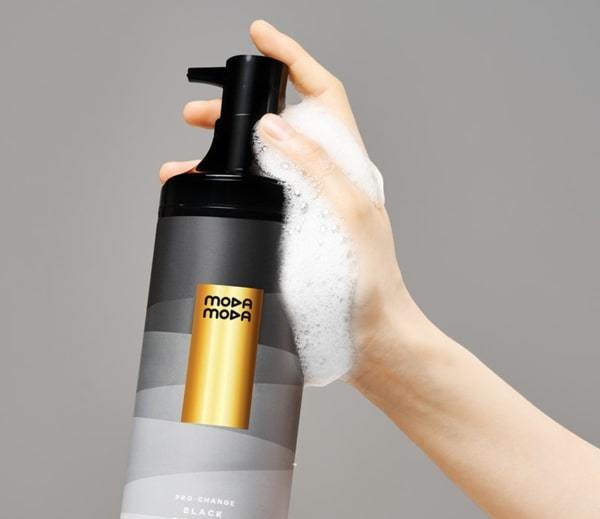 |
Pro-change Black Shampoo from Moda Moda (Moda Moda) |
South Korean hair care brand Moda Moda said Friday it is considering relocating its core business to the US in the face of a sales ban of its popular hair coloring shampoo by the nation’s drug agency.
“If the Ministry of Food and Drug Safety sticks to sales ban on our coloring shampoos, we have no choice but to moving our business to the US,” a Moda Moda official said.
The official added the company’s US headquarters is currently located in New York but there are plans to move to Delaware soon.
Its Pro-Change Black shampoo, co-developed by Lee Hae-shin, a KAIST professor, is known as the world’s first hair coloring shampoo using the browning reaction caused by polyphenol that occurs in fruits like apples and bananas when they are exposed to air.
Affectionately called “Miracle shampoo,” the shampoo became immensely popular upon its release in August 2021. The product sold more than 15 billion bottles, making 30 billion won ($24.5 million) in less than a year.
But in January this year the drug agency decided to ban the sales and production of the shampoo for containing a substance, called 1,2,4-Trihydroxybenzene or THB, which can cause damage to genetic information in cells.
South Korea and the European Commission prohibit the use of THB in hair dyes, while the US has no regulations on the use.
Moda Moda immediately appealed the decision, claiming that its coloring shampoo is different from other hair dyes as it uses THB as a receptor that melts polyphenol to change hair color.
Amid the ongoing dispute at home, the firm has continued expanding the distribution network of the shampoo, launching the product through popular online shopping sites like Amazon in the US and Rakuten in Japan.
“It’s ironic that we can sell the product overseas but not in Korea. That alone says the ministry’s sales ban is too excessive,” the official said.
Earlier in the day, the company also released a statement asking President-elect Yoon Suk-yeol to offer a new chance for their product to get tested fairly by the government’s certification agency.
“We ask the new government to fulfill its pledge to handle national affairs based on science and data analysis so that our innovative products can contribute to the Korean beauty industry,” the company said in a statement.
The official said its relocation plan would be decided depending on the results of the Prime Minister’s office’s regulatory reform committee meeting on the shampoo’s safety that is scheduled to be held Monday.
If the drug agency’s sales ban takes effect as planned, sales of the shampoo will be banned starting in 2024.
By Byun Hye-jin (
hyejin2@heraldcorp.com)







![[Today’s K-pop] Blackpink’s Jennie, Lisa invited to Coachella as solo acts](http://res.heraldm.com/phpwas/restmb_idxmake.php?idx=644&simg=/content/image/2024/11/21/20241121050099_0.jpg)
